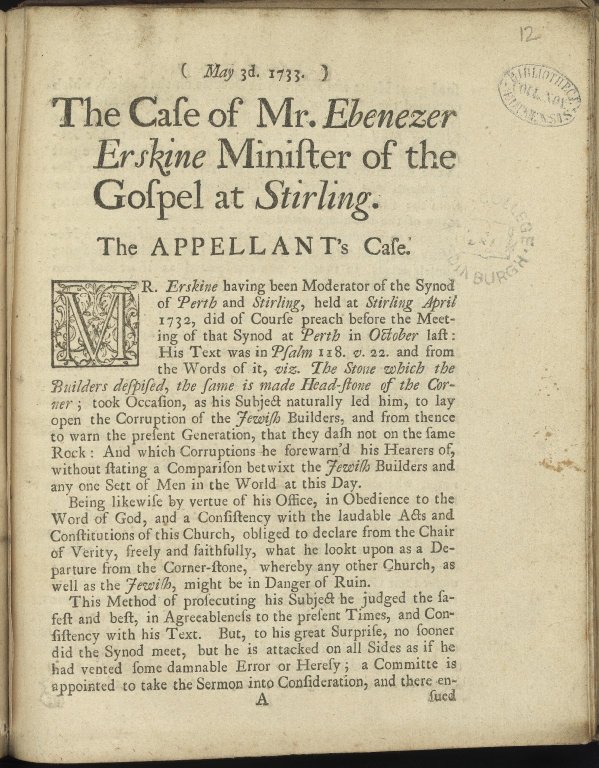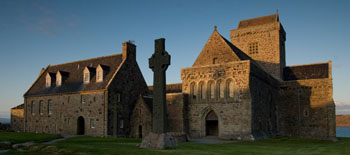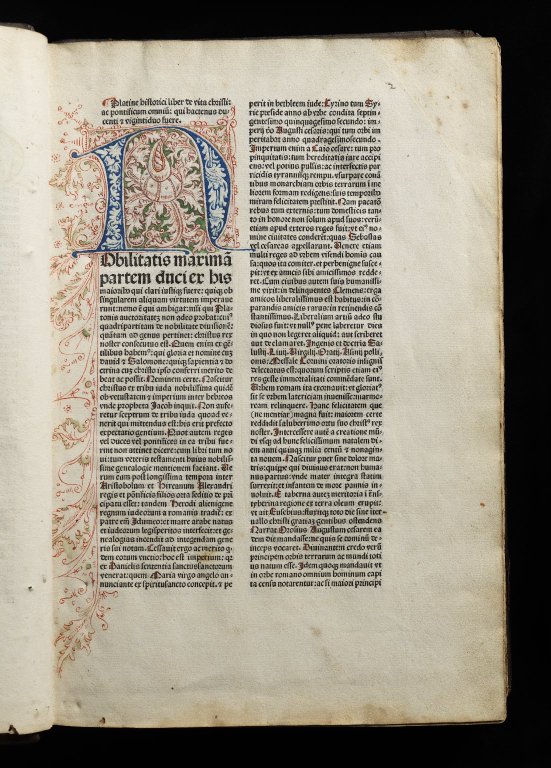 New on display in the Funk Reading Room is the Works of St Anselm, Opuscula beati Anselmi archiepiscopi Ca[n]tuarie[n]sis ordinis Sancti Benedicti, printed in 1497.
New on display in the Funk Reading Room is the Works of St Anselm, Opuscula beati Anselmi archiepiscopi Ca[n]tuarie[n]sis ordinis Sancti Benedicti, printed in 1497.
April 21 is the Feast Day of St Anselm (1033-1109). A Benedictine monk who lived during the reigns of William the Conqueror and William Rufus, he became the abbot of the monastery at Bec in Normandy, France. Named as Archbishop of Canterbury in 1093 by William Rufus, under the rule of Henry I Anselm faced the challenges of preserving the secular and spiritual rights of the Church in the face of the authority of the King. Despite these political difficulties, Anselm held two great ecclesiastical councils at Lambeth and York where many decrees for church reform were made.
Anselm’s prayers and meditations (accessible online to University of Edinburgh users in the Patrologia Latina) had a lasting influence through the middle ages, but his writings also made a significant contribution to theological debate into the twentieth century and beyond.
New College Library holds two copies of Anselm’s works in the Incunabula Collection, which was recently catalogued online as part of the Funk Cataloguing Projects.
Sources
D.H. Farmer, ‘Anselm (1033-1109)’, The Oxford Dictionary of Saints, Oxford University Press, 2011; online edn 2012 [http://www.oxfordreference.com, accessed 17 April 2013]
R. W. Southern, ‘Anselm [St Anselm] (c.1033–1109)’, Oxford Dictionary of National Biography, Oxford University Press, 2004; online edn, Oct 2009 [http://www.oxforddnb.com/view/article/572, accessed 17 April 2013]

 Continue reading
Continue reading 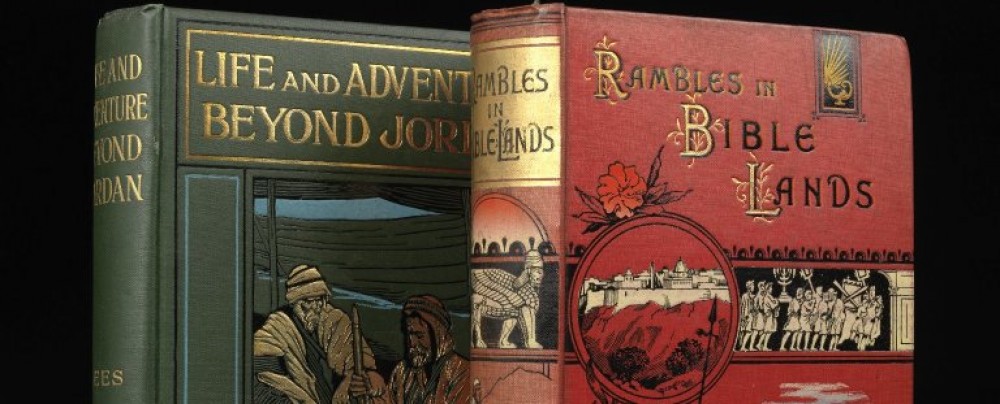

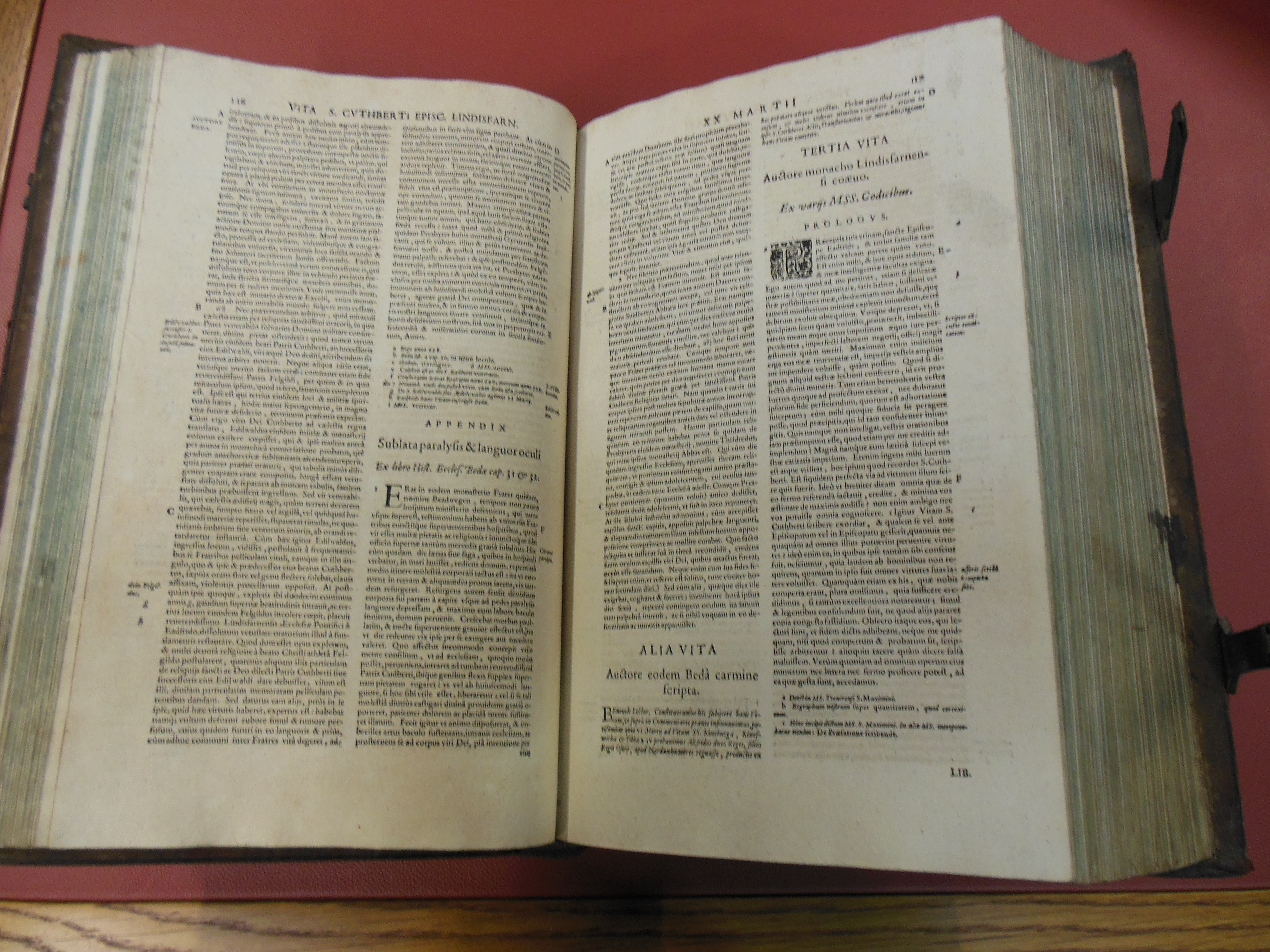
![By Flemish school (Unknown) [Public domain], via Wikimedia Commons. On permanent display in Espace Ami Lullin of the Bibliothèque de Genève.](http://libraryblogs.is.ed.ac.uk/newcollegelibrarian/files/2013/07/488px-john_calvin_-_young.jpg)


